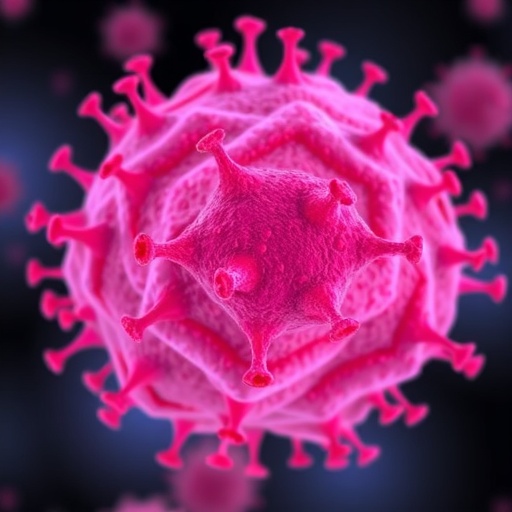A groundbreaking study funded by Cancer Research UK has revealed striking dementia-like behavior within pancreatic cells poised on the brink of cancerous transformation. This discovery holds profound implications for understanding pancreatic cancer’s origins and ultimately improving its treatment and prevention strategies. With pancreatic cancer accounting for nearly 7,000 deaths annually in the UK alone, unlocking the molecular mechanisms that underlie its development is critical to combating this notoriously lethal disease.
Published in the esteemed journal Developmental Cell on August 15, 2025, the research was conducted by scientists at the Cancer Research UK Scotland Centre in collaboration with leading geneticists and cancer biologists. Utilizing an experimental animal model, the team meticulously tracked the cellular changes within the pancreas of mice over time. Their goal was to delineate the sequence of molecular disruptions that prompt healthy pancreatic cells to evolve into malignant ones.
Central to their findings is the malfunction of autophagy—a fundamental cellular recycling process responsible for degrading and removing excess or damaged proteins. Autophagy maintains cellular homeostasis and proteostasis, but in pancreatic pre-cancerous cells, this system is impaired. The research demonstrates that when autophagy falters, misfolded and “problem” proteins accumulate, aggregating into clumps that resemble the protein deposits found in neurodegenerative conditions such as Alzheimer’s disease and other dementias. This parallel opens an intriguing new avenue in cancer biology, linking pancreatic tumorigenesis to mechanisms commonly studied in neuroscience.
The researchers observed that these protein aggregates were not just an artifact of the mouse model. Biopsies from human pancreatic tissues at various stages of cancer development showed similar patterns of protein clumping, strongly indicating that disrupted protein homeostasis is a conserved hallmark of pancreatic carcinogenesis. This discovery challenges the conventional viewpoint that genetic mutations alone drive cancer progression and highlights the critical role of cellular quality control failures.
Pancreatic cancer remains one of the most treatment-resistant cancers, partly because symptoms appear late and effective therapies are scarce. The study’s lead author, Professor Simon Wilkinson, emphasized the significance of their results: “Understanding how autophagy disruption initiates pancreatic cancer could shed light on new modes of early detection and intervention. Drawing insights from dementia research, where protein aggregation is well-studied, may allow us to identify novel molecular targets to halt or reverse tumor development.”
The study also sheds light on the relationship between common genetic mutations, particularly in the KRAS gene, and autophagy defects. KRAS mutations are prevalent in pancreatic cancer and known to drive oncogenesis, but this new research suggests that faulty autophagy acts synergistically with KRAS mutations to prime pre-cancerous pancreatic epithelial cells for malignant transformation. This synergism between genetic and proteostatic stressors underscores the complexity of pancreatic tumor initiation.
From a mechanistic perspective, the researchers focused on ER-phagy, a specialized form of autophagy targeting the endoplasmic reticulum (ER), a key organelle responsible for protein folding and quality control. Defects in ER-phagy compromise the cell’s ability to maintain proteostasis, leading to proteotoxic stress and cellular dysfunction. These stressors can alter the cellular “state,” predisposing epithelial cells to oncogenic shifts in identity and behavior—hallmarks of early cancer development.
Importantly, the study employs advanced imaging techniques and molecular profiling to delineate how ER-phagy dysregulation disrupts cellular homeostasis. By tracking these changes in vivo within the pancreas, the researchers provide compelling evidence that raises the possibility of leveraging autophagy pathways as biomarkers for early cancer detection or as therapeutic targets to restore protein quality control.
In the broader context of cancer biology, autophagy has a paradoxical role. While sometimes aiding cancer cell survival and growth by supplying metabolic substrates, this research reveals that its disruption in initial stages may actually precipitate cancer onset by fostering a toxic intracellular environment. Understanding this dual nature of autophagy in pancreatic neoplasia could be instrumental in designing context-dependent therapeutic strategies.
The research team also plans to explore how external factors such as aging, biological sex, and dietary influences modulate autophagy and pancreatic cancer risk. Age-related declines in cellular recycling and repair mechanisms may exacerbate protein aggregation, potentially making older individuals more susceptible to pancreatic cancer. Similarly, sex hormones might influence autophagy pathways, contributing to observed epidemiological differences in pancreatic cancer incidence. Diet-induced metabolic stress could further impact cellular homeostasis, providing additional modifiable risk factors.
Dr. Iain Foulkes, Executive Director of Research and Innovation at Cancer Research UK, underscored the urgency of advancing such research: “Pancreatic cancer diagnosis rates continue to rise, and survival improvements lag behind other cancers. Studies that diversify our understanding beyond genetics and embrace cellular biological processes like autophagy are crucial for developing innovative early detection methods and new treatment avenues.”
Ongoing investigations aim to translate these foundational insights into clinical applications, including identifying molecular markers indicative of autophagy disruption in human pancreatic tissue samples and blood. The hope is that these markers could enable earlier diagnosis when interventions are more effective. Parallel efforts are underway to test pharmacological agents that can modulate autophagy and restore proteostasis, potentially stalling or reversing precancerous changes.
Ultimately, this research points to an intricate interplay between genetic mutations and cellular quality control failures in the etiology of pancreatic cancer. Recognizing the shared mechanisms between dementia and pancreatic cancer protein aggregation not only opens interdisciplinary research frontiers but may revolutionize how we conceptualize and tackle one of the deadliest human malignancies.
As pancreatic cancer continues to pose formidable clinical challenges, studies like this illuminate hidden facets of cellular pathology that could serve as the foundation for next-generation diagnostics and therapeutics. By bridging insights from neurodegeneration to oncology, scientists are edging closer to unraveling pancreatic cancer’s deepest mysteries, promising hope for millions affected worldwide.
Subject of Research: Animals
Article Title: ER-phagy and proteostasis defects prime pancreatic epithelial state changes in KRAS-mediated oncogenesis
News Publication Date: 15-Aug-2025
Web References:
- https://www.cancerresearchuk.org/health-professional/cancer-statistics/statistics-by-cancer-type/pancreatic-cancer
- https://www.cell.com/developmental-cell/fulltext/S1534-5807(25)00473-3
- https://www.cancerresearchuk.org/about-cancer/pancreatic-cancer/research-clinical-trials/pancreatic-cancer
- https://www.sciencedirect.com/science/article/abs/pii/S0304383524006803?via%3Dihub
References: Pimentel et al. Autophagy and cancer therapy. Cancer Letters. 2024. DOI: 10.1016/j.canlet.2024.217285
Keywords: Cell biology, Pancreatic cancer, Autophagy, KRAS mutation, Proteostasis, ER-phagy, Protein aggregation, Oncogenesis




